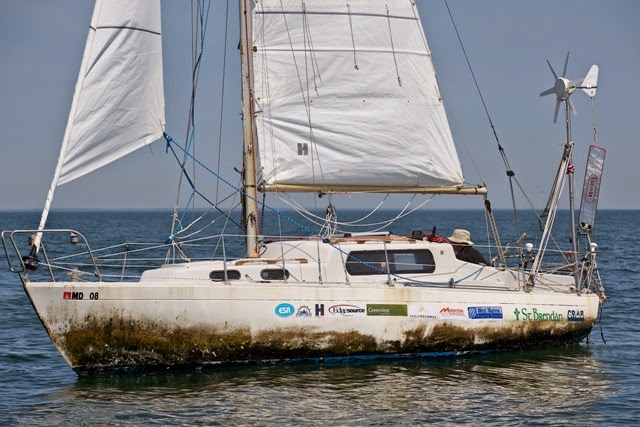Conversely, a good sailor will be able to avoid those things (storms,
I'm sorry, but that's simply naive. Most cruising boats do less than 150 miles a day, on average, and many do a lot less. On a voyage of several thousand miles there is no way to avoid a developing tropical storm at those speeds, considering a tropical system can move at more than 15 knots (I was hit by one doing more than 22 knots, according to the forecast) at times.. I can't count the number of times over the years I've been struck by severe squalls at night, where the winds probably exceeded 80 knots. Even reefed down, that's a whole lot of force and pressure to put on any vessel, let alone one designed and built for harbour and coastal sailing, where weather forecasting can sort of be relied on.
On the simple, short trip of 650 miles from the NE to Bermuda, the Gulfstream in combination with the cold water flowing south from Arctic waters, can and often does create local weather that is very severe
AND completely unforecastable. These may not be large systems, but I've personally had 70+ knots for several hours on that run, several times. The best weather router can't forecast these tiny storms and those not on a well built boats are the ones screaming at the top of their lungs for a get out of trouble free card from the USCG. It happens a lot on that run. I've heard some on the radio telling that they were in high winds and 30+' waves within a day of Bermuda, and none of it was forecast.
There are plenty of other places on this planet that are equally dangerous and unforecastable, and unavoidable, if one is circumnavigating, and going into these areas on a vessel that can't take the worst one could expect is just plain foolhardy.
People do get lucky and we see that every day in all walks of life. But to say it is all about the skipper is not a valid statement. There almost always comes a time, if one spends enough time out on the deep blue, when the skipper (and crew) are done. Worn out, weary to the bone, and in need of sleep. That's when it is the boat's turn to stand up to whatever weather or situation she is in, and care for her crew.

